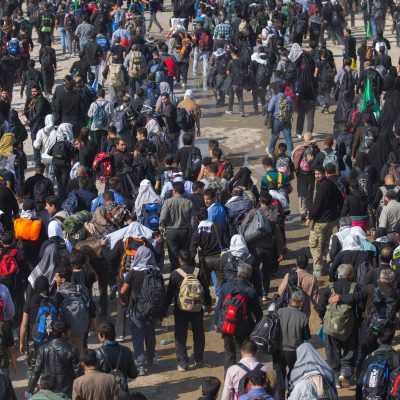The EU, its Neighbours and its Borders

Croatia’s recent signing of the membership treaty and discussions on the Schengen area have rekindled the debate on the EU’s borders and, in broader terms, on the relations that the EU should establish with its neighbours. This debate, which is also of major symbolic significance, needs to be addressed first and foremost on the basis of a global analysis embracing “enlargement policy”, “neighbourhood policy” and the management of the EU’s “external borders”.
1 – Enlargement is both a strategic tool for the EU and an encouraging prospect for many of its neighbours
The enlargement strategy has been and still is a formidable foreign policy tool for the EU that has allowed it to contribute to the political stability and the economic development of many of its neighbours, particularly in central Europe. It has also led to the creation of an area comprising some 500 million citizens, with all of the benefits that that entails in economic and diplomatic terms. Nor does it hamper the deepening of European policies, which can be implemented either at the EU level or in a narrower context (as the EMU has proved).
The implementation of this enlargement strategy is probably not perfect, however, and it would doubtless benefit from further adjustment involving:
– stricter monitoring to ensure that new members’ apply the binding terms of their membership, both before and after they join: this imperative should apply both to membership of the EU and to membership of the euro zone and Schengen area;
- – the EU shouldering greater responsibility for the victims of any “relocation” that such membership might entail: the “European Adjustment and Globalisation Fund” can be the instrument for achieving this, unless a specific tool is created along the lines of the “Integrated Mediterranean Programmes” set up in the 1980s;
- – and lastly, a clearer definition of the EU’s “new borders”, which is a necessity in order to forestall the perception that we are for ever pressing on ahead and throwing all caution to the winds: this implies a clarification of the status of all our neighbours, not all of whom have of course necessarily vocation to join the EU.
On this basis we can state that enlargement policy has not yet exhausted all of its beneficial effects, particularly with regard to the western Balkan countries. Certain other countries may also ultimately become EU members if they either can or wish to do so – a remark that applies equally well to Iceland and to Turkey. The crucial thing is to remember that the primary aim of enlargement policy is to “bring Europe to its neighbours” rather than the other way around, and that in that regard it is a very valuable tool of influence for the EU.
2 – “Enlargement or no enlargement”, it is crucial for the EU to develop a “good neighbour” policy
The EU has to anchor its relations with its neighbours to a common foundation stone based on interdependence and on shared values if it is to promote prosperity and the rule of law all around it. In this regard, the Arab Spring offers it a historic opportunity to strengthen another pillar of its external action, namely its “neighbourhood policy”, by mobilising further resources both to the south and to the east.
In accordance with the principle of “differentiation”, the EU must grant additional benefits to those states that pledge to tackle their recurrent weaknesses (nepotism, corruption, the misappropriation of funds and so forth) and it must adopt an intransigent stance with those that scorn basic rights, while making a particular effort to support civil society as a whole. The success of countries that can benefit from “advanced status”, such as Tunisia, Egypt, Ukraine and Georgia, will act as a litmus test both for other countries in general and for the EU itself.
The settlement of conflicts that threaten the security and the stability of whole regions – last year in Libya, this year in Syria – also demands strong involvement on the part of the EU, since this would allow it to forge a fully-fledged pole of influence at the international level.
This “good neighbour” policy also concerns Russia, with which the EU must move forward towards a stable and constructive partnership based on interdependence in such crucial spheres as energy, trade and the free movement of people, but also on cooperation over major security issues on the EU’s borders (the Caucasus, Syria, the Israeli-Palestinian conflict and so forth) and beyond (Iran).
Lastly, a “good neighbour” policy presupposes an improvement in cooperation with countries in the European Economic Area, including Switzerland and Lichtenstein, and the fostering of consistency with our internal policies, especially in connection with the struggle against tax evasion.
3 – Effective management of the Schengen area’s “external borders” presupposes better cooperation among neighbours
Relying on neighbouring countries to monitor “one’s own” land and sea borders demands an unprecedented and very high level of mutual trust among the 26 countries that make up the Schengen area. So it is not necessarily surprising that, in the event of issues occurring on an external border monitored by one or the other country, that country’s partners then take it to task and debate the measures to be adopted. In view of this, several different factors need to be taken into account:
– the political priority is to tighten vulnerable external borders by improving the share-out of tasks in terms of solidarity and of responsibility: a deepening of European solidarity (through the European External Borders Fund, the “Frontex” Agency, joint patrols, “Rapid Border Intervention Teams”) must go hand in hand with the Schengen member states’ shouldering of greater responsibility: this demands that countries alleged to be at fault play their role to the full while accepting assessment and assistance from their fellow member states and from the EU in order to re-establish the mutual trust that is a prerequisite for good relations among neighbouring countries;
- fixed monitoring may be re-established at national borders in certain specific circumstances and as a last resort by appealing to “safeguard clauses”, which as things stand now are applicable with regard to public order but not to illegal immigration or to the faulty monitoring of external borders. The reference to fixed monitoring posts shows the ongoing symbolic importance of those “borders”, but if they were to become permanent, they would have a very heavy impact on budgets while being only relatively effective; in addition, it would complicate life for the tens of thousands of people who cross borders to work, to study or to visit relatives without any administrative formalities or long queues;
- illegal immigration influxes are not due primarily to faulty monitoring on the part of fixed border posts: some two-thirds to three-quarters of all illegal immigrants on EU soil actually entered the EU perfectly legally but simply stayed on beyond the deadline for their departure; this lack of control concerns the member states as a whole and it may be resolved in part when a European visa information exchange system comes into force in summer 2012, and then more extensively when a planned comprehensive European entry and exit register is set up;
- the effective prevention of illegal immigration rests first and foremost on a tightening of mobile controls in a context compatible with freedom of movement as defined by the Court of Justice; it also rests principally on the degree of cooperation established with transit countries at least as much as with the immigrants’ countries of origin: that is another area in which the agreements forged in the context of the neighbourhood policy are of strategic importance for the EU.





